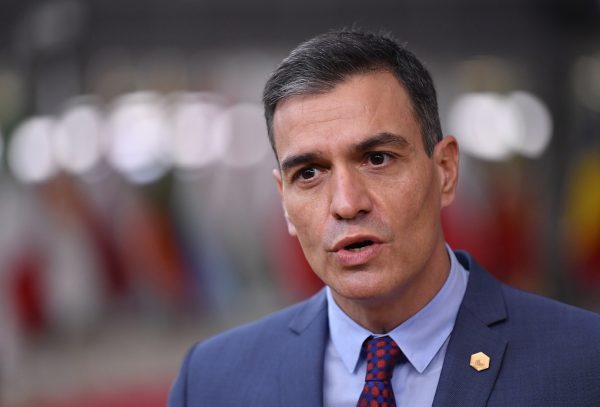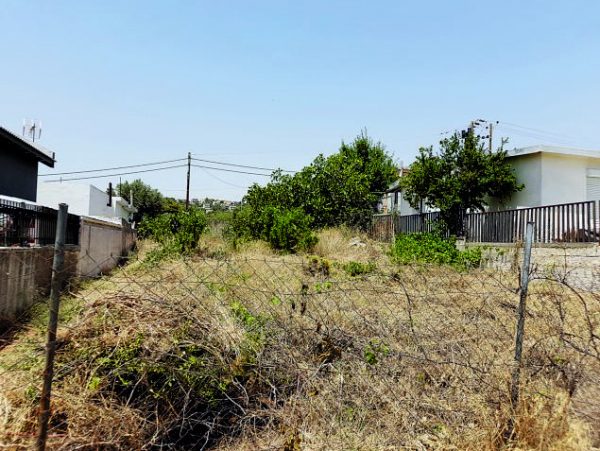
Bank of Greece (BoG) Gov. Yannis Stournaras on Tuesday essentially voiced opposition to a portion of the government’s spending policy – which mostly manifested in the wake of the pandemic – of allocating one-off welfare payments and subsidization of essential goods (heating oil, grocery items, electricity) for low-income citizens.
Speaking at a press conference on the sidelines of the “Greece Meta VII” conference in Athens, the influential Greek central banker also tabled the prospect of reconsidering tax breaks – a standing policy plank of the current Mitsotakis government.
He also expressed his view that the ECB should lower interest rates as of mid-2024, assuming certain conditions allow. At the same, Stournaras clarified that this was his personal opinion, something which has not been debated within the ECB’s general council setting.
Turning to spending aimed at lower-income strata in the country, he said asked if such subsidies actually benefit those “at-risk”, while noting that every expenditure must now be scrutinized, “as we’ll needed revenue”.
“Greece needs investment, public investment. It needs (cash) cushions to cope with crises; geopolitical, climate crises,” he said, while warning that the country’s current account deficit is the second largest among OECD countries.
“I am not saying it is risky, because it’s not caused by the public sector,” he qualified, in a bid to distinguish from the deficit crisis that erupted in 2010.
“We need to be very careful, because the fiscal situation will tighten after Jan. 1 … we (Greece) returned from the edge of the abyss and is now an international success story.”
His advice to the center-right government is to follow an “orthodox fiscal policy”, allowing the country to double its primary budget surplus next year to 2.1 percent of GDP.
Regarding the course of the ECB’s interest rates, Stournaras predicted that the inflation rate will again increase, citing what he called “technical reasons”, as subsidies will soon expire. “However, if by the middle of next year, in August, inflation falls below 3 percent on a permanent basis then there may be a thought towards a small reduction (in interest rates), in the beginning.”
Latest News

Easter Sales Performance and the Source of €4–5 Million in Losses
Easter retail sales were relatively weak this year, with the only "real winners" being the livestock farmers who had lambs to sell.

Hotel Foreclosures Continue to Plague Greece’s Islands
A surge in hotel foreclosures across Greece’s islands threatens small tourism businesses, despite booming visitor numbers and record-breaking travel in 2024.

Athens Launches Task Force to Safeguard Historic City Center
The new municipal unit will ensure compliance to zoning laws, curb noise, and address tourist rental issues starting from the Plaka district.

WTTC: Travel & Tourism to Create 4.5M New Jobs in EU by 2035
This year, international visitor spending is set to reach 573 billion euros, up by more than 11% year-on-year

IMF: US Tariffs Shake Global Economy, Outlook Downbeat
IMF slashes global growth forecast to 2.8% as U.S. tariffs create uncertainty and ‘negative supply shock

First Step Towards New Audiovisual Industry Hub in Drama
The project is set to contribute to the further development of Greece’s film industry and establish Drama as an audiovisual hub in the region

Airbnb Greece – Initial CoS Ruling Deems Tax Circular Unlawful
The case reached the Council of State following annulment applications filed by the Panhellenic Federation of Property Owners (POMIDA)

Mitsotakis Unveils €1 Billion Plan for Housing, Pensioners, Public investments
Greek Prime Minister Kyriakos Mitsotakis has announced a new set of economic support measures, worth 1 billion euros, aiming to provide financial relief to citizens.

Alter Ego Ventures Invests in Pioneering Gaming Company ‘Couch Heroes’
Alter Ego Ventures' participation in the share capital of Couch Heroes marks yet another investment by the Alter Ego Media Group in innovative companies with a focus on technology.

Corruption Still Plagues Greece’s Driving Tests
While traffic accidents continue to claim lives on Greek roads daily, irregularities and under-the-table dealings in the training and testing of new drivers remain disturbingly widespread













![Accor: Η βιωσιμότητα «κλειδί» για την ανάπτυξη και ανθεκτικότητα του ελληνικού τουρισμού [έρευνα]](https://www.ot.gr/wp-content/uploads/2025/04/thumbnail-90x90.jpg)
























![Accor: Η βιωσιμότητα «κλειδί» για την ανάπτυξη και ανθεκτικότητα του ελληνικού τουρισμού [έρευνα]](https://www.ot.gr/wp-content/uploads/2025/04/thumbnail-600x400.jpg)


 Αριθμός Πιστοποίησης
Αριθμός Πιστοποίησης